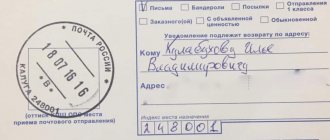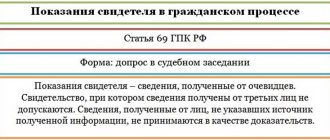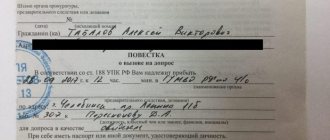1. A witness or victim is summoned for questioning by a summons, which indicates who is summoned and in what capacity, to whom and at what address, the date and time of appearance for questioning, as well as the consequences of failure to appear without good reason.
2. The summons is handed to the person summoned for questioning against a signature or transmitted via means of communication. In the event of the temporary absence of a person summoned for interrogation, a subpoena is given to an adult member of his family or transferred to the administration at his place of work or, on behalf of the investigator, to other persons and organizations that are obliged to hand over the subpoena to the person summoned for interrogation.
3. A person summoned for questioning must appear on time or notify the investigator in advance of the reasons for failure to appear. In case of failure to appear without good reason, a person summoned for questioning may be brought in or other procedural coercive measures may be applied to him, provided for in Article 111 of this Code.
4. A person under the age of sixteen is summoned for questioning through his legal representatives or through the administration at his place of work or study. A different procedure for calling for questioning is allowed only if it is caused by the circumstances of the criminal case.
5. The serviceman is summoned for questioning through the command of the military unit.
Subpoena for questioning: law
A subpoena is a document issued by a judge or other official to summon a witness for questioning. However, this practice is applied only for criminal proceedings. There is a difference between a subpoena for a survey and for an interrogation.
A summons for questioning is sent as part of an already initiated criminal case. And the survey is carried out during the pre-investigation check. The latter is necessary to collect relevant evidence and understand whether there are grounds to initiate a case. It is necessary to understand who has the right to summon for questioning and interrogation:
- judges;
- Investigative Committee employees;
- police investigators;
- FSB investigators;
- police investigators;
- FSSP employees.
Extract from Article 188 of the Code of Criminal Procedure of the Russian Federation
Thus, if the document did not come from an authorized person, then the requirements can be ignored. Article 188 of the Code of Criminal Procedure of the Russian Federation states that a subpoena calls only for questioning. However, Chapter 26 of the Code of Criminal Procedure of the Russian Federation also allows individuals to be summoned to carry out other necessary investigative measures.
Persons not subject to interrogation
According to Art. 56 of the Code of Criminal Procedure, witness testimony cannot be demanded from the following persons who received information about a crime in the performance of official duties:
- Judge, juror, arbitrator (arbiter).
- The lawyer of the suspect (accused) or other person who has applied for legal assistance and provided information regarding the case under investigation. The exception is cases when the lawyer himself requests interrogation in the interests of his client and with his consent (or the consent of another person).
- President of the Russian Federation.
- A member of the Federation Council, a State Duma deputy, unless they express their consent.
- Diplomat.
- Commissioner for Human Rights in the Russian Federation.
- Inspector of the Tax Service.
- Priest.
The procedure for questioning a witness under the Code of Criminal Procedure of the Russian Federation, as well as an example of an interrogation protocol can be found in a separate article https://lexconsult.online/6832-poryadok-doprosa-svidetelya-po-upk-rf
Witness immunity also applies to:
- a suspect who has the right to refuse to provide information discrediting him;
- close relatives of the defendant.
If these persons are nevertheless summoned for questioning, they must appear at the place of demand and present documents confirming their immunity.
Delivery of the summons to the summoned person
It is necessary to understand how the process of transmitting a subpoena occurs. The law provides for several possibilities, which are specified in Part 2 of Article 188 of the Code of Criminal Procedure of the Russian Federation.
- Personally against signature. If the person being called is absent for some reason, then the recipient can be any relative who lives together. This is a standard method that involves the official going to the summoned person's home and serving a summons. The latter must sign for receipt. However, it is quite rare to use this method, since many do not live at the place of registration.
- Using available means of communication. Mail, phone, instant messengers, phone call. However, this method raises many questions among lawyers, since it is not clear who is really transmitting the message. When making a call, it can be difficult to prove that the official conveyed information, so they often try to use instant messengers. There is a read mark there. But you need to know who owns the phone.
- By mail at your place of work. If it is impossible to establish the actual location of the person being called, you can transmit the message through the employer. The letter is sent to the address of the company or delivered personally by an official to the person responsible for receiving the correspondence.
- On behalf of officials, it is transferred to organizations that are obliged to provide the document directly to the recipient. For example, it is known that a particular citizen must appear for a medical examination at a certain time. Then it is allowed to provide the document to the doctor who will examine this person.
Extract from Article 189 of the Code of Criminal Procedure of the Russian Federation
It is worth understanding that recipients do not always want to receive this letter. Therefore, law enforcement officials have to be creative. For example, they leave it with neighbors, put it under the door, and so on. At the same time, everything is recorded on camera, so that later it cannot be said that the letter was not received.
Important! The subpoena must be served only by legal means. If you use methods that violate the provisions of the current legislation, then the fact of delivery is recognized by the court as invalid. As a result, the information obtained during the interrogation is also rejected by the court and is not attached to the case.
If a minor is summoned, then it is necessary to act through legal representatives.
Criminal Procedure Code of the Russian Federation
What does a summons for questioning look like?
You need to understand what this document looks like. It is compiled using typewritten text. The following must be there:
- In the upper left corner there is a stamp of the organization from which the summons is sent, the date of preparation and the number of the outgoing document.
- In the upper right corner you must indicate to whom the letter is being sent.
- The title is “Summons to Summon for Interrogation.”
- Below is a text indicating where and what time you need to appear, and what documents you need to have with you.
- Informing about the possibility of inviting a lawyer, in accordance with the provisions of Article 50 of the Code of Criminal Procedure of the Russian Federation.
- Informing about the consequences of failure to appear.
- FIL of the official, his title and position, as well as personal signature.
- Method of transmitting information, date and time of delivery.
Summons for questioning - sample
The document must bear the seal of the organization. This way, the person being called will understand that it is an original and not a fake.
Responsibilities of a witness in criminal proceedings
A witness during an investigation and trial has a number of responsibilities, namely:
- appear on time to testify;
- give exclusively truthful testimony. For giving false testimony, liability is provided in accordance with Art. 307 of the Criminal Code of the Russian Federation. We will tell you more about penalties here
The witness is prohibited from disclosing any information that became known to him during the proceedings, but provided that he was warned in advance of liability for this in accordance with Art. 161 Code of Criminal Procedure of the Russian Federation.
Consequences of failure to appear for questioning
You need to know what will happen if the person being summoned does not appear for questioning. All consequences are specified in the current legislation. Attendance is mandatory, and if you cannot come at the specified time, you must inform the official in advance. The agenda always includes contact information. It is enough to call and report the impossibility of arriving, indicating the reason. Then it will be possible to agree on another date. In this case, there will be no negative consequences.
Important! Sometimes the summons arrives late. This is a valid reason for failure to appear, then there is no liability. You may also not come due to your absence from the city or country. It is worth providing the official with relevant evidence.
The moment when a person lives in another region is considered controversial. There is not always money for a trip. Then it is allowed to use technical means to organize two-way communication. For example, you can use Skype. In this case, the interrogation protocol is sent by mail. After signing it, the interrogated person sends the document back.
Conducting an interrogation
To be held liable, the following facts must be proven:
- the summons is drawn up correctly, in accordance with legal requirements;
- the document is provided to the summoned person in a legal manner;
- the absence was for an unexcused reason.
Forced delivery to the place of interrogation is allowed, as well as the imposition of a fine and arrest.
Controversial issues
There are several controversial nuances in which it is possible to appeal an official’s decision to prosecute due to failure to appear.
- Sending a document by mail does not always guarantee its receipt. Often letters are taken out by third parties. Therefore, postal workers must serve the summons in person to avoid any problems.
- Sending by email or using other modern means of communication also does not guarantee receipt. It is required that a scan of the summons be sent. If the text does not comply with the current requirements, then the letter can be legally ignored.
- If information is transmitted by telephone, the parties do not see each other. This means that there is a possibility of deception. It is also impossible to prove the fact of communication, so failure to appear is allowed. However, this issue is controversial, since communication and transmission of a message are often proven through court. For this purpose, witnesses are brought in: colleagues of the official who work with him in the same office.
- Often, with the chosen preventive measure of detention, problems arise because the letter did not arrive or was received late. But such a measure of punishment is used in relation to those who deliberately ignore the requirements of an official.
An employee of the RF IC fills out a summons
Thus, if an official insists on punishment, it is possible to challenge this decision. To do this, you must submit an appeal and attach relevant evidence, if any. It is recommended to hire a lawyer who will protect the interests of the client. But you need to understand that the service is paid. A public defender is provided only to accused persons after a criminal case has been initiated.
Conducting an interrogation - step-by-step instructions
The interrogation must take place strictly according to the principles established by law. The person being interrogated is obliged to tell the truth. If it is possible to document the words, it is worth doing. There are criminal penalties for providing false information. Thus, from a witness one can become an accused. It is worth taking a closer look at how everything happens.
Step 1
Initiation of a criminal case if appropriate evidence is available.
Criminal proceedings
Step 2
Drawing up a summons for questioning to all persons related to the case. It is necessary that the documents are completed correctly. In this case, it is not allowed to interrogate several persons at the same time, as this may lead to distortion of the information received. The exception is when there is a confrontation.
Drawing up a subpoena for interrogation
Step 3
The appearance of the person summoned for questioning. The official must verify the identity using a passport or other identification document, and then inform the person about the reason for the call.
Appearance of the person summoned for questioning
Step 4
Conducting interrogation in accordance with the provisions of the Code of Criminal Procedure of the Russian Federation. If the person being called comes with a friend or relative, the latter will not be allowed into the office. You are allowed to come with a lawyer. Then the information is entered into the protocol that the person being called was not alone. It is also possible for legal representatives to be present during the interrogation of incapacitated persons or minors.
Conducting an interrogation
Step 5
Signing of the protocol by the parties.
Signing the protocol
It is worth noting that you can leave work during the interrogation. At the same time, wages are maintained. You are allowed to take with you the necessary evidence in the case. If not all information is provided during interrogation, because the person has forgotten the information and needs confirmation, then a second call is allowed. It is prohibited to conduct interrogations on the territory of the summoned person. An exception is if he is in the hospital and cannot come in person due to health problems. They can also come to a disabled person who cannot move independently.
Commentary on Article 188 of the Code of Criminal Procedure of the Russian Federation
1. Part 1 of the commented article speaks only about the witness and the victim, meanwhile, the procedure for calling for questioning enshrined here can be extended to other participants in the criminal process who, according to the Code of Criminal Procedure, can testify (the accused, the suspect, the expert and the specialist). It does not apply only to those subjects who are subject to interrogation at their location or who are not subject to summons and interrogation.
2. According to Part 2 of Art. 8 of the Federal Law “On Advocacy and the Bar in the Russian Federation”, a lawyer cannot be summoned and questioned as a witness about the circumstances that became known to him in connection with an appeal to him for legal assistance (both within the framework of criminal, civil, arbitration and even administrative process) or in connection with its provision. The prohibition of interrogating as a witness a lawyer - a defender of a suspect or accused - about circumstances that became known to him in connection with an appeal to him for legal assistance or in connection with its provision, is also contained in paragraph 2 of part 3 of Art. 56 Code of Criminal Procedure of Russia.
3. The defendant’s defense attorney cannot be questioned as a witness about the circumstances and facts that became known to him in the framework of his professional activities in providing legal assistance, regardless of the time and circumstances of his receipt of such information <1202>. ——————————— <1202> See: Determination of the Constitutional Court of the Russian Federation of July 6, 2000 N 128-O “On the complaint of citizen Viktor Vasilyevich Parshutkin about the violation of his constitutional rights and freedoms by paragraph 1 of part two of the article 72 of the Code of Criminal Procedure of the RSFSR and Articles 15 and 16 of the Regulations on the Bar of the RSFSR” // Ross. newspaper. 2000. August 3.
4. The following cannot also be questioned:
- judge, juror - about the circumstances of the criminal case that became known to them in connection with participation in the proceedings in this criminal case (clause 1, part 3, article 56 of the Code of Criminal Procedure of Russia);
- a clergyman - about the circumstances that became known to him from confession (clause 4, part 3, article 56 of the Code of Criminal Procedure of Russia);
- a member of the Federation Council, a deputy of the State Duma without their consent - about the circumstances that became known to them in connection with the exercise of their powers (clause 5, part 3, article 56 of the Code of Criminal Procedure of Russia).
5. Accordingly, it is not recommended to call such persons for this type of interrogation.
6. Meanwhile, it should be recognized that the prohibition of interrogating an official is not yet a direct prohibition of calling him for questioning. Therefore, such a challenge cannot be considered illegal. A person summoned for questioning is obliged to appear for questioning and report (provide documents confirming this circumstance) that he has witness immunity.
7. Our recommendation against calling persons with witness immunity, in respect of whom there is no direct legislative prohibition of calling them for questioning, applies only to those cases where their corresponding immunity is confirmed by the materials of the criminal case at the time of their invitation for questioning.
8. A witness (accused, etc.) is summoned by subpoena. This term was used three times by the legislator in the commented article. And everywhere it means a procedural document drawn up by the person conducting the investigation or executing the instructions of the investigator (investigator, etc.). This document is drawn up in compliance with the rules enshrined in the commented article
9. Moreover, a witness (accused, etc.) who has reached 16 years of age is summoned to the investigator (inquiry officer, etc.) by sending a written demand - a summons - to his address. A minor who has not yet turned 16 years old is also sent a summons. But it should be formatted somewhat differently.
10. As follows from the content of the commented article, the law does not require the summons to indicate specific evidence (circumstances) that served as the actual basis for the summons for questioning.
11. It is not enough in the summons to indicate information about the person to whom the witness (accused, etc.) has been summoned; it should also reflect the exact address of the building and the number of the office where he should come.
12. The summons also reflects the consequences of failure to appear without good reason. The consequences of failure to appear without good reason, which must be reflected in the summons, are expressed by the phrase “in case of failure to appear within the specified period without good reason on the basis of Art. 113 Code of Criminal Procedure You can be subjected to arrest either on the basis of Art. 118 of the Code of Criminal Procedure, a monetary penalty may be imposed on you.”
13. Since a person can be summoned for questioning only after the initiation of a criminal case, these consequences do not apply to those who are invited to the preliminary investigation body or the inquiry body in the process of verifying a statement (report) of a crime. Therefore, if such a person is summoned by summons, it is recommended that the above consequences be crossed out on the pre-printed form so as not to deceive the summoned person.
14. Part 2 of the commented article is devoted to the procedure for serving a subpoena on a witness (accused, etc.).
15. “Served” means that the procedural document in question is handed over in person. In this case, the person is explained the purpose of this document, the obligation arising from its receipt, and responsibility in case of failure to fulfill this obligation. It is recommended that when serving the summons, the entire contents of the summons are read to the person. Although this requirement is not directly enshrined in the law.
16. It is recommended to serve the summons on the witness (accused, etc.) against a signature indicating the date and time of delivery. But sometimes a summons was brought, but the witness (accused, etc.) was not at home. In such a situation, a subpoena for delivery to the witness (accused, etc.) is handed over against signature to any of the adult capable family members living with him, an employee of the housing maintenance organization or administration at his place of work, or a representative of the village (rural or other at the place of residence ) administration or other persons. The above-mentioned persons are obliged to hand over the subpoena to the witness (accused, etc.) called for questioning. Responsibility for failure to fulfill a procedural obligation is provided for in Art. Art. 11, 111, 117 Code of Criminal Procedure of Russia.
17. The summons is transmitted by courier or by means of communication. Accordingly, it can be transmitted by post, telephone message, telegram, facsimile, electronic or any other communication.
18. Part 2 of the commented article determines the procedure for transmitting a summons in the event of the temporary absence of the person summoned for questioning. Absence is temporary when there is evidence that the person summoned for questioning will return to the apartment (house) where he lives within 24 hours. Or at least he will return so quickly that he will be able to appear on time for interrogation <1203>. In other words, his absence from his place of residence will not be a valid reason for failure to appear for questioning. ——————————— <1203> Similar judgments were made by other scientists. See: Commentary on the Criminal Procedure Code of the Russian Federation... M.: Yurayt-Izdat. P. 455; and etc.
19. The legislator provides an additional mandatory condition for the transfer of a subpoena to another person or organization. It can only be carried out on behalf of the investigator (interrogating officer, etc.). The form of such an order is not defined by law. However, we recommend a written form of instruction. It is not necessary to formalize the order by a special resolution of the investigator (investigator, etc.). Such a resolution is drawn up so that a person who does not have a criminal case under investigation has the right to carry out separate investigative actions on it. The order to transmit a summons can be formalized in the summons itself. To do this, it is sufficient to act within the limits provided by Part 3 of Art. 474 of the Code of Criminal Procedure of the powers, provide the summons with an additional column indicating through which other person or organization the summons can be transmitted in the event of the temporary absence of a witness (accused, etc.).
20. Part 3 of the commented article imposed on the person summoned for interrogation the obligation to appear at the appointed time, and also resolved issues arising in connection with the failure of this subject of criminal proceedings to appear for interrogation.
21. To avoid a situation when the investigator (inquiry officer, etc.) does not know whether the witness (accused, etc.) did not appear before him for a good reason or not, the latter must notify the investigator (inquiry officer, etc.) in advance about the reasons why he cannot come to him at the appointed time.
22. Notification may be either oral or written. Nevertheless, we recommend that in cases where a witness (accused, etc.), for example, reported the reason for his failure to appear by phone, simultaneously send the investigator (inquiry officer, etc.) a corresponding letter of notification. In this letter, indicate when (date and time) and to whom exactly they were informed by telephone (what number) about his failure to appear and what the reasons were for this. This should be done so that in the event of a subsequent violation of the legal rights and freedoms of a witness (accused, etc.) by bringing him in, despite a valid reason for absence from interrogation and prior notice of failure to appear, he has evidence that he acted in accordance with with the rules of part 3 of the commented article
23. The investigator (interrogating officer, etc.) should be notified of both the failure to appear and its reasons. Moreover, it is not necessary that the reasons for non-appearance be valid. Whether the reasons that prevented the witness (accused, etc.) from appearing for questioning at the appointed time were valid is ultimately decided by the investigator (inquiry officer, etc.). The witness (accused, etc.) is obliged to report the actual reasons.
24. If he gave a reason that, in the opinion of the investigator (interrogating officer, etc.), was disrespectful and did not appear for interrogation, if he violated only one obligation - the obligation to appear for interrogation at the appointed time. He can challenge the legality of the action taken against him in such a situation (the imposition of a monetary penalty). Bodies (officials) exercising control and supervision over the activities of the investigator (inquiry officer, etc.) may take the position of a witness (accused, etc.), recognize the reason given to them for failure to appear as valid, and thus agree that the arrest was illegal.
25. If the witness (accused, etc.) did not give any reasons for his failure to appear at the interrogation, he violated two obligations, and in any case, the arrest against him is lawful.
26. Other measures of procedural coercion (provided for in Part 2 of Article 111 of the Code of Criminal Procedure of Russia), in addition to the summons, may be applied to a witness (accused, etc.) who has not appeared, and to the accused and suspect, in addition, preventive measures.
27. Part 4 of the commented article describes the features of calling persons under 16 years of age for questioning.
28. In this case, the summons is issued for delivery not to the summoned minor, but to his legal representative or the representative of the administration at the place of work or study of the witness (accused, etc.).
29. The procedure for calling a minor witness for the first interrogation should be as follows:
1) a decision is made on the admission to participation in the criminal case of one of the parents, adoptive parents, guardian, trustee of a witness (accused, etc.) under 16 years of age or a representative of the institution (organization) in whose care this witness (accused, etc.) is located .), guardianship and trusteeship authority as a legal representative <1204>; from this moment the parent (adoptive parent, etc.) becomes the legal representative; ——————————— <1204> Further, for brevity, unless otherwise specifically stated, a parent (adoptive parent, etc.).
2) a summons is sent (transferred) to the legal representative to summon the person under 16 years of age for questioning;
3) the legal representative appears for questioning together with the person represented;
4) before the interrogation, the legal representative is given a resolution on his admission to participate in the criminal case, his rights, duties, responsibilities and the procedure for conducting the interrogation are explained;
5) a person under 16 years of age is interrogated;
6) the legal representative has the right to be present at this interrogation.
30. Part 4 of the commented article also talks about a different procedure for summoning a person under 16 years of age for questioning. Another procedure in relation to summoning such a witness (accused, etc.) would be to summon him by summons, telephone message, telegram handed directly to him and not to his legal representative, or to serve a summons to another person, but again not allowed to participate in the criminal case in as his legal representative. A different procedure should also be considered to call a witness (accused, etc.) under 16 years of age through the administration of the institution where he is located or sometimes stays (administration of the pre-trial detention center, head of a sports section or circle, etc.).
31. The circumstances of the criminal case, which, according to Part 4 of the commented article, determine the possibility of summoning a witness under 16 years of age (accused, etc.) not through his legal representative (the administration at the place of his work or study), can be connected both with those available in the investigator (inquirer, etc.) has information that the legal representative negatively influences the person represented, contributes to his failure to appear for interrogation, and does not have the power (authority) necessary to ensure the minor’s appearance. This group of circumstances should also include the presence of a witness (accused, etc.) without access to him by his legal representative (the administration at his place of work or study). We are talking about a situation where a witness (accused, etc.) under 16 years of age is, for example, in custody or in the infectious diseases department of a hospital, etc.
32. According to part 5 of the commented article, all military personnel are summoned for questioning through the command of the military unit in which they serve. The command of a military unit should include the corresponding commanders (chiefs) of military units and their deputies. And by military unit we mean military command bodies, associations, formations, military units, ships, organizations, military professional educational organizations and military educational organizations of higher education, in which, in accordance with the legislation of the Russian Federation, military personnel undergo military service (Article 2 of the Federal Law dated July 12, 1999 N 161-FZ “On the financial liability of military personnel” <1205>). ——————————— <1205> See: Collection. legislation of the Russian Federation. 1999. N 29. Art. 3682.
33. Based on what is enshrined in Part 2 of Art. 3 of the Criminal Procedure Code of the Russian Federation, a summons for interrogation of a person enjoying immunity from such actions in accordance with generally recognized principles and norms of international law and international treaties of the Russian Federation can only be carried out with the consent of the foreign state in whose service the person enjoying immunity is or was, or an international organization of which he is or was a member of the staff.
34. See also commentary to Art. Art. 5, 56, 104, 111 - 113, 172 - 174, 182, 191, 456 Code of Criminal Procedure <1206>. ———————————
Note:
Monograph by Ryzhakov A.P. “Interrogation: grounds and procedure” is included in the information bank. <1206> For a more complete commentary on this article, see: Ryzhakov A.P. Interrogation: grounds and procedure. M.: Delo i Servis, 2014. 192 p.










